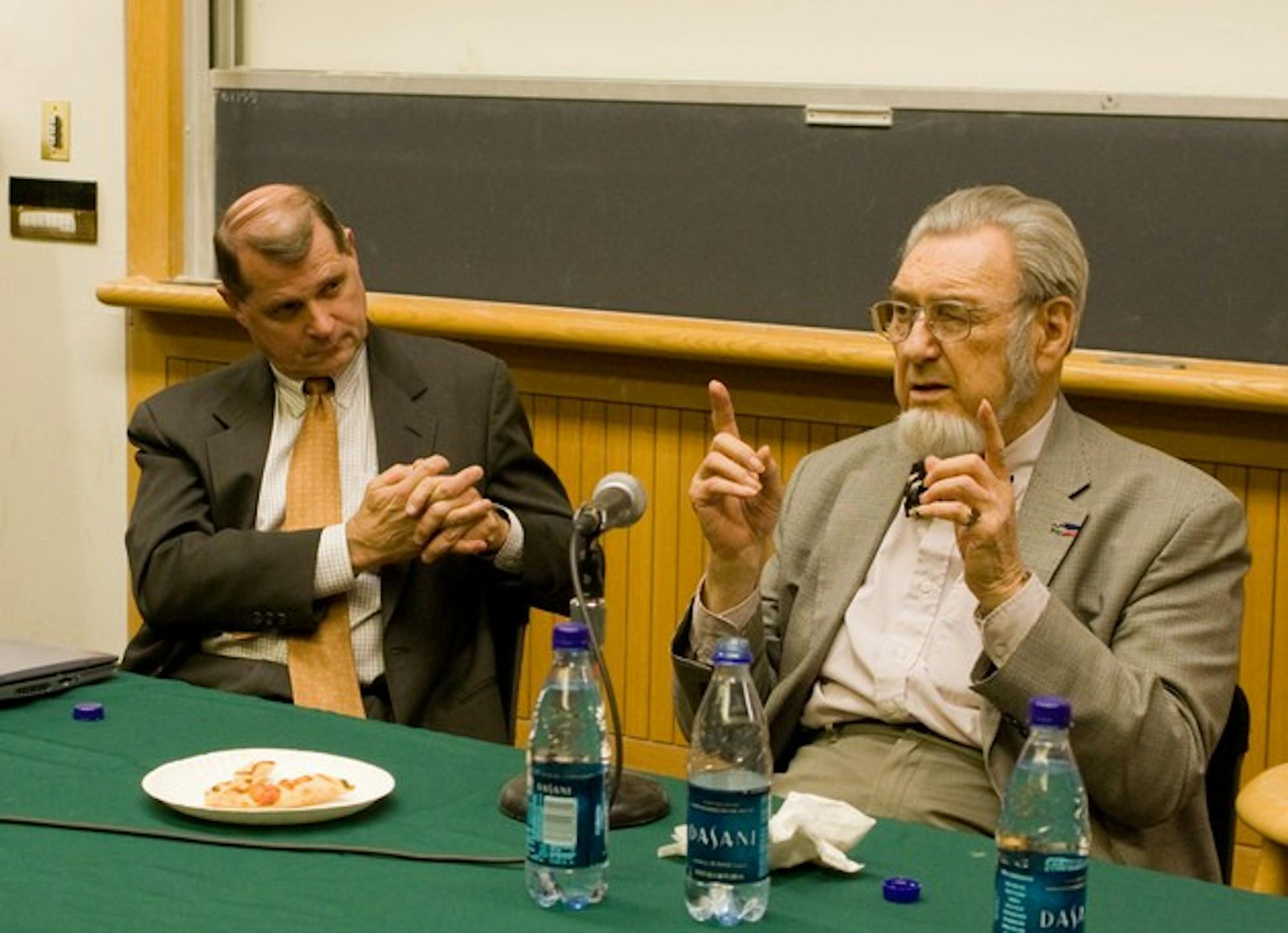In the future, all genetic diseases will be cured in the embryo, and physicians will no longer have to treat diseases in patients, according to surgeon and Thayer School of Engineering professor Joe Rosen, who organized the panel.
Supporting this claim, Anika Mirick '07, a program analyst for the National Human Genome Research Institute, pointed to a surgical method by which specialists can identify and remove the genes for certain diseases within embryonic cells.
Noting a pill endowed with a camera for intestinal imaging and the Femtosecond Laser, which allows a surgeon to manipulate the cytoplasm, nucleus and other parts of a cell, panelist Richard Satava, professor of surgery at the University of Washington.
He claimed that the most recent medical innovations in the realm of genetics may completely transform the traditional role of the physician.
"Today's ethical issues may change dramatically," Satava said. "There are a number of children that have been born today with specific genetic defects we know how to cure."
Quoting a fortune cookie message, Rosen read, "If you want to know about the future, study the past," a phrase he said was applicable to the study of surgical advancement, as he introduced former U.S. Surgeon General C. Everett Koop '37.
Koop, a pioneer in the field of pediatrics, recounted the emergence of his specialty 50 years ago, in a climate where even the best surgeons were afraid to operate on children, he said.
This fear kept the number of pediatric surgeons low and restricted specialization in the field, which allowed Koop to work on a number of different cases.
"Pediatric surgery in those days was a surgeon's delight," Koop said. "I was having the time of my life as a surgeon of the skin and all of its contents."
Today, pediatric surgery has become more specialized, according to Koop, as pediatric surgeons focus on particular areas of surgical practice, similar to specialized doctors of adult patients.
This specialization led to the rise of fetal surgery, where surgeons can delve into a uterus, operate on a defect and correct it before the child is born.
Koop reminded the audience that doctors performing fetal surgeries must also keep the mother's health concerns in mind.
He added that ethical issues surrounding fetal surgery have not yet been resolved.
"Just because you have something doesn't mean it's ethical, doesn't mean you ought to use it," Koop said.
Mirick called attention to potentially contentious devices that can scan DNA to determine a fetus's phenotype.
These SNP tests, as they are called, sell for $1000 and can search more than 6,000 genetic mutations to detect varieties of malaria resistance, susceptibility to heart disease and even earwax type.
Mirick questioned the moral cost of this developments.
"Is technology surpassing science?
"Is there subpeona potential? What if the FBI wants your genetic info?" she asked the audience.
The consumerization of genomics represents more than just a breakthrough in technology, Mirick said.
She added that this is because it is indicative of the way consumers approach healthcare.
"A little over a month ago, GoogleHealth announced that you can upload and create your own health profile, download imaging techniques and medical records," Mirick said.
In the future, Google may upload the entire genomic DNA sequence into its GoogleHealth system, which would allow people to access their particular sequences and add them to their medical profiles, Mirick said.
She noted that the creation of these profiles could raise privacy concerns.
Criticizing recent media hype surrounding advancements in gene therapy, Koop argued that the publicity has had misleading effects on the public.
No diseases have yet been treated through genetic engineering, he said, although scientists have been able to manipulate DNA to make diseases more deadly.
At the end of the panel, Rosen and Koop both warned that scientists must not be allowed to "run willy-nilly."
"Science is easy; the politics is hard," Rosen said. "Scientists will just have fun making all sorts of things."




